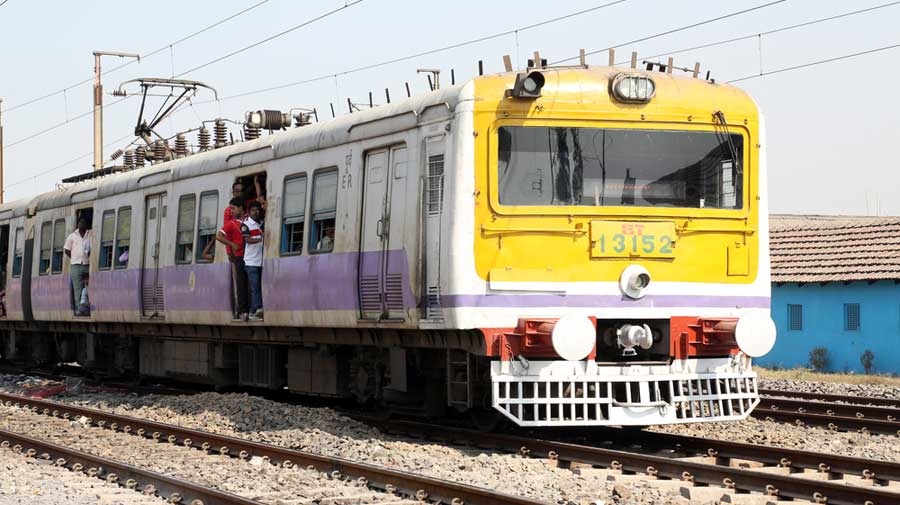Thousands of women working as help in city homes have been jobless for the last six months after the local train services were paused because of the Covid-19 pandemic. The trains may soon be back, but the jobs may not.
The scare of Covid-19 infection and the chances of getting exposed to infected persons on local trains have prompted many Calcuttans to decide against resuming the services of help whose only mode of commute is the local train.
Chhaya Mandal, 45, a single mother in Diamond Harbour’s Madhabpur who had been commuting almost 100km a day to work at three homes in Gariahat and Ballygunge, has been asked not to return even after the train service resumes.
Munni, 50, who works in an apartment in Ballygunge, has stopped returning home to save her job. She is staying at her employer’s home and has been visiting her family in Kankinara once or twice a month only when she and her friends, who have adopted the same model, save enough to share the fare of a taxi.
There are thousands of women like Chhaya and Munni whose lives changed forever after the train service was suspended.
They expect little change in their lives even after the service resumes.
A large number of women from poverty- stricken pockets of the Sunderbans, Kultali, Lakshmikantapur, Diamond Harbour and Baruipur used to earn their living by working as domestic help in the city. Only those who worked in houses close to their own home have been able to retain their jobs.
“A family in whose home I had worked for 20 years has sacked me with the assurance that they will pay my salary till the day I worked. But I have not been able to meet them till now. Another family has snapped all ties and are not even receiving my calls,” Chhaya narrated her plight from her Madhabpur home.
Abandoned by her husband at a young age, Chhaya has no other source of income and has been surviving on boiled rice and wild plants.
Many of her neighbours, who used to travel together by local train to reach their workplace in the city and have the financial support of their families, have shifted to selling vegetables.
Munni, too, is apprehensive about how long she would be able to stay away from her family like this and sustain her job.
“I have two sons, daughters-in-law and grandchildren at home. Earlier, I would start my day at 4am, board a train for Ballygunge and return home by 7pm. Everything changed after the trains stopped. Now, I cannot see my family for months,” Munni said. Yet, she is not complaining and said she was lucky to have been retained by her employers.
Namita Khatoon, 42, and her likes — whose family members are attached to emergency services — are the luckiest of the lot.
Namita, who used to travel by local train from Baruipur to Jadavpur, now commutes with her brother-in-law on his bicycle. The brother-in-law works as a guard at a housing complex on Prince Anwar Shah Road.
Several Calcuttans Metro spoke to expressed their helplessness over not being able to resume the services of their old help. “I never thought we would ever have to say ‘No’ to our trusted maid, who had been looking after my family for the last 15 years,” said Rima Mukherjee, a resident of Anandapur, off EM Bypass.
“We used to transfer her monthly salary to her son’s account during the lockdown. But honestly it would not be possible to pay her without work forever. So we have decided to make a one-time payment to her annually to take care of a part of her expenses.”
Pritha Mitra, who stays in Bansdroni and had hired the services of an elderly woman for her parents who live in an apartment in Garia, said she was too scared to expose her parents to someone who would travel by train.
“I had no other option but to terminate her. We are still looking for someone who would not commute in public transport,” Mitra said.











